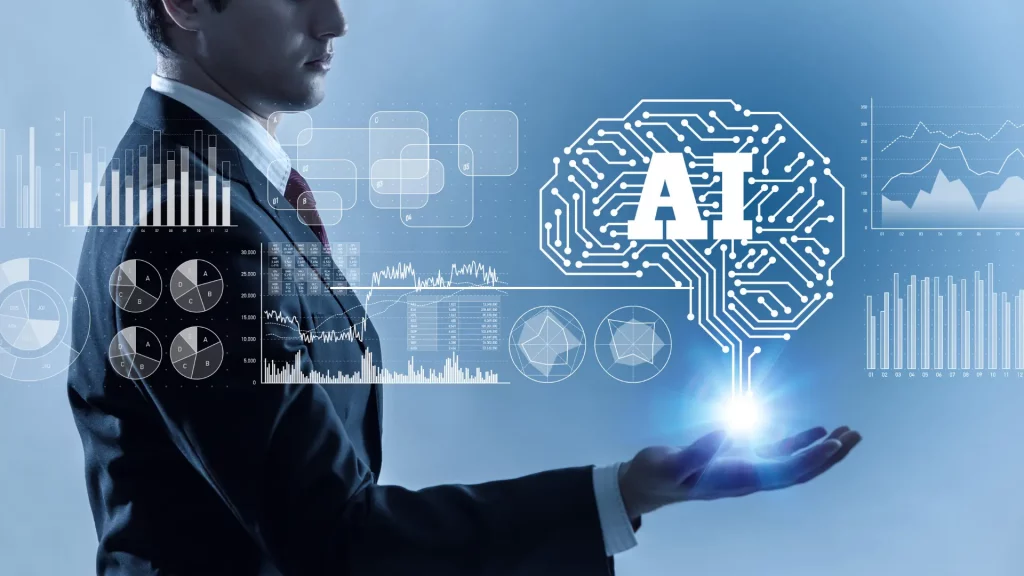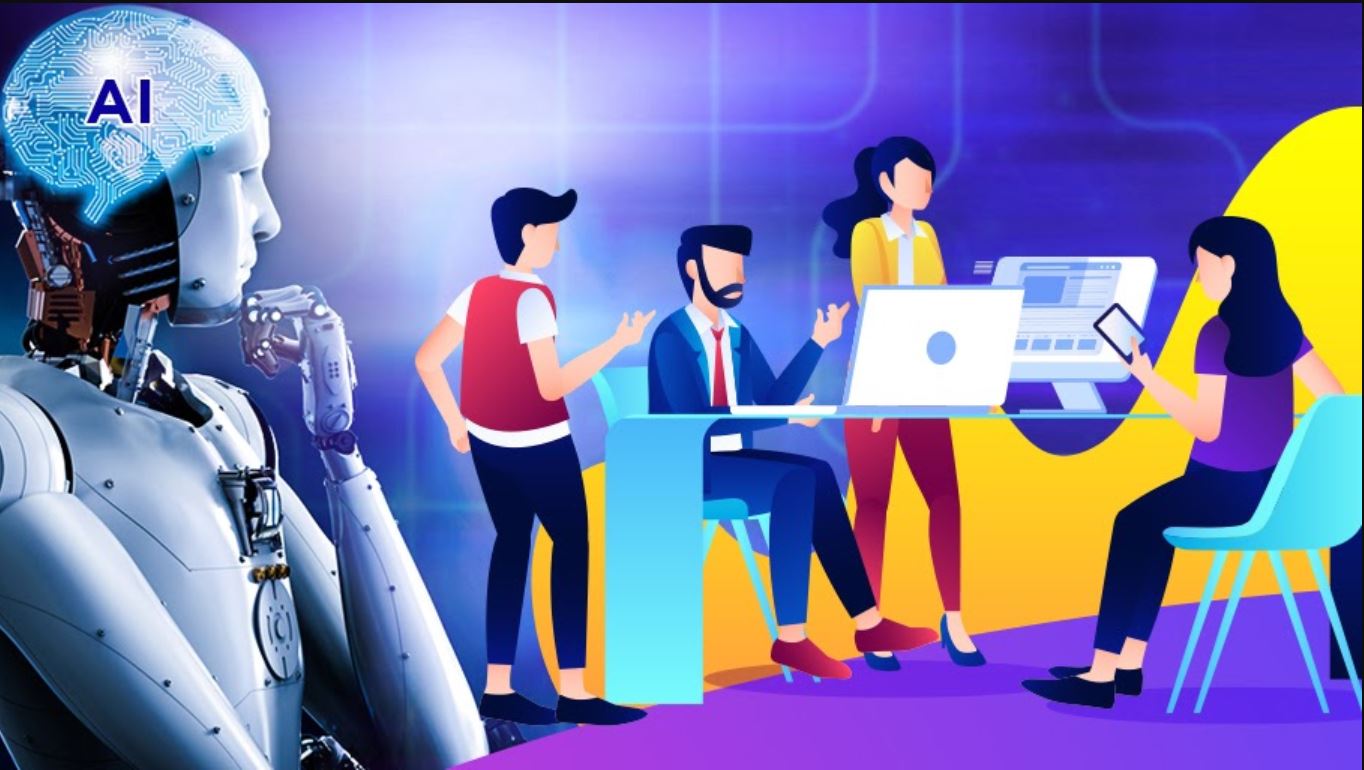In today’s dynamic business world, where efficiency and productivity are paramount, AI (Artificial Intelligence) is making its presence felt across various aspects of project management and workflow automation. This blog delves into the exciting intersection of AI Project Management, AI workflow automation, and their profound impact on team collaboration.

AI Project Management: Navigating Projects with Precision
Introduction to AI Project Management
Project management involves meticulous planning, execution, and monitoring of tasks to meet specific objectives within defined parameters. AI project management refers to the infusion of AI technologies into these processes, adding an intelligent layer to the project management toolkit. This fusion allows for data-driven decision-making, predictive analytics, and enhanced resource allocation.
Why AI Matters in Project Management
Effective project management is crucial for organizations. Here’s how AI contributes to project management success:
- Efficient Resource Allocation: AI algorithms analyze resource availability, employee skill sets, and task dependencies to optimize resource allocation, reducing bottlenecks and boosting efficiency.
- Data-Driven Decision-Making: AI systems analyze project data to offer insights for better decision-making. This minimizes guesswork and enhances strategic planning.
- Real-time Monitoring and Predictive Analytics: AI technology allows for real-time project monitoring and predictive analytics, which can identify potential project risks and suggest mitigation strategies proactively.
- Improved Communication: AI-powered virtual assistants and chatbots streamline communication within project teams and with stakeholders, ensuring everyone stays informed and engaged.
AI-Powered Features for Project Management
Several AI-powered features have become integral to modern project management:
1. Automated Project Planning and Scheduling: AI can automatically generate project plans and schedules based on task dependencies, resource availability, and historical data, optimizing time and resource management.
2. Real-time Monitoring and Predictive Analytics: AI continuously tracks project progress, providing real-time insights and predictions about potential issues or delays.
3. AI-Driven Resource Allocation: Resources are allocated based on project requirements, employee skill sets, and resource availability, ensuring efficient resource utilization.
4. Intelligent Project Documentation and Knowledge Management: AI helps organize and retrieve project-related documents and knowledge efficiently, promoting better collaboration and decision-making.
AI Workflow Automation: Streamlining Operations
Introduction to AI Workflow Automation
Workflow automation involves automating repetitive tasks and processes, reducing manual effort and the risk of human error. AI Workflow Automation takes this further, using AI technologies to make automation more intelligent and adaptive.
The Importance of Efficient Workflows
Efficient workflows are critical for productivity and quality control. AI workflow automation brings several benefits:
- Enhanced Efficiency: AI automates routine tasks, reducing the time spent on manual work and enabling employees to focus on more strategic and creative activities.
- Improved Accuracy: AI systems ensure tasks are performed consistently and with high precision, reducing the chance of errors or rework.
- Adaptive and Intelligent Automation: AI can adapt to changes in workflows, making automation more dynamic and capable of handling complex tasks.
- Predictive Analytics: AI-driven automation can predict workflow bottlenecks, allowing organizations to allocate resources effectively and prevent delays.
AI-Powered Features for Workflow Automation
AI-powered technologies enhance workflow automation in several ways:
1. Robotic Process Automation (RPA): RPA automates repetitive, rule-based tasks, freeing up employees for more complex work.
2. Machine Learning (ML) Algorithms: ML algorithms analyze data to make intelligent decisions within workflows, improving task prioritization and resource allocation.
3. Natural Language Processing (NLP): NLP is used for document processing and data extraction, automating communication and information retrieval tasks.
4. Cognitive Automation: This technology empowers systems to handle complex problem-solving, decision-making, and adaptive workflows, further automating intricate processes.
The Synergy of AI Project Management and Workflow Automation
The combination of AI Project Management and AI workflow automation creates a synergy that can transform the way organizations operate. This partnership enables:
- Automated Project Planning and Scheduling: AI systems can create and adjust project plans and schedules based on task dependencies, resource availability, and historical data.
- Real-time Monitoring and Predictive Analytics: AI constantly monitors project progress, providing real-time insights and predictions about potential issues or delays.
- AI-Driven Resource Allocation: Resources are allocated based on project needs, employee skill sets, and resource availability, ensuring optimal resource utilization.
- Intelligent Project Documentation and Knowledge Management: AI helps organize and retrieve project-related documents and knowledge efficiently, facilitating better collaboration and decision-making.
AI in Team Collaboration: The Future is Here
The Importance of Team Collaboration
Effective team collaboration is crucial for project success. It fosters creativity, innovation, and efficient problem-solving. When teams work cohesively and communicate seamlessly, the likelihood of achieving project goals increases significantly.
How AI Enhances Team Collaboration
AI technologies are powerful enablers of improved team collaboration:
1. Virtual Assistants and Chatbots: These AI-driven tools facilitate seamless communication and information retrieval. Team members can interact with virtual assistants using natural language, making communication more accessible and efficient.
2. AI-based Project Management Software: These platforms integrate AI features that enhance collaboration, such as automated task assignment, progress tracking, and decision support based on data analytics.
3. Natural Language Processing (NLP): NLP technology helps break down language barriers by providing effective communication and collaboration tools that transcend linguistic differences.
4. Collaborative AI Tools for Ideation: AI can stimulate brainstorming and idea generation sessions by suggesting relevant insights and solutions based on available data.

Benefits and Challenges of AI in Team Collaboration
Embracing AI in team collaboration offers a host of advantages:
- Improved Communication and Knowledge Sharing: AI streamlines communication within teams and promotes knowledge sharing, resulting in a more informed and efficient workforce.
- Enhanced Task Coordination: AI automates task coordination and delegation, ensuring that the right tasks are assigned to the right people, saving time and preventing misunderstandings.
- Intelligent Recommendations and Insights: AI systems provide data-driven recommendations, fostering better decision-making and problem-solving.
- Streamlined Project Workflows: AI-driven automation reduces manual effort, streamlining project workflows and freeing up time for strategic tasks.
However, integrating AI into team collaboration does pose challenges, such as privacy and security concerns, resistance to change, and the need to manage biases and ethical considerations.
AI in Action: Real-World Success Stories
To highlight the real-world impact of AI in Project Management and team collaboration, let’s explore a couple of case studies:
Example 1: XYZ Company’s AI-Enhanced Project Management Platform
XYZ Company integrated AI into its project management processes, resulting in a 20% reduction in project timelines and a 15% increase in overall productivity. The AI system automatically assigned tasks based on employee availability and skills, leading to a more balanced workload and improved project outcomes.
Example 2: AI Integration in a Multinational Organization’s Team Collaboration
A multinational organization embraced AI in team collaboration, achieving a 30% reduction in communication-related bottlenecks and a 25% increase in innovative ideas generated during team meetings. The AI tools used natural language processing to break down language barriers, enabling global teams to collaborate more effectively.
Best Practices for Embracing AI
To ensure a successful integration of AI in project management, workflow automation, and Team Collaboration and AI, consider these best practices:
.Define Clear Objectives: Clearly outline the objectives you wish to achieve with AI integration, whether it’s improving project success rates, reducing manual effort, or enhancing decision-making.
- Ensure Data Quality: High-quality data is crucial for AI systems to perform effectively. Ensure your data is accurate, up-to-date, and relevant to your project and collaboration needs.
- Provide Adequate Training and Support: Train your team on AI tools and offer support as they adapt to these technologies. Education is essential to ensure smooth integration and adoption.
- Regular Evaluation and Updates: Continuously assess the performance of AI systems, gather feedback from users, and update them as necessary based on feedback and evolving project and collaboration requirements.
- Data Privacy and Security: Implement robust security measures to protect sensitive project, workflow, and collaboration data, ensuring it is used responsibly and securely.
In Conclusion
AI is redefining the way projects are managed and teams collaborate. The integration of AI in project management and workflow automation enhances data-driven decision-making, predicts and mitigates risks, and automates time-consuming tasks. AI-driven team collaboration, aided by virtual assistants and smart tools, fosters more efficient communication and better information retrieval. With the power of AI, organizations can navigate the complexities of modern business with ease, driving success and innovation like never before. Embrace AI to stay competitive in a dynamic and data-driven world, and watch your projects and teams thrive.


